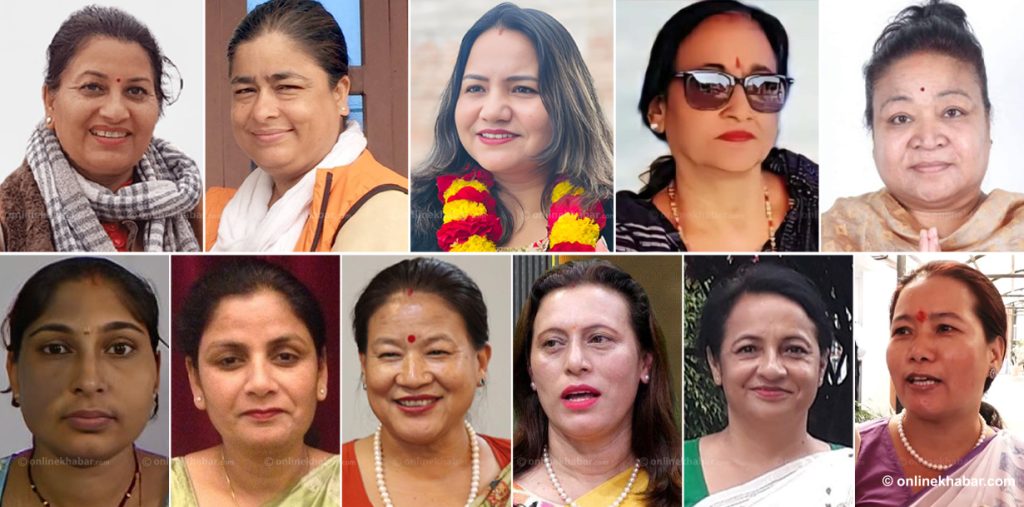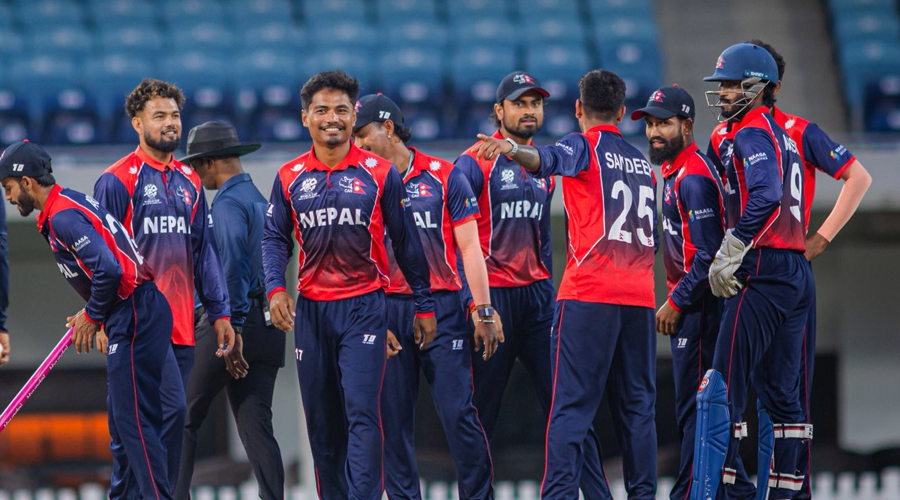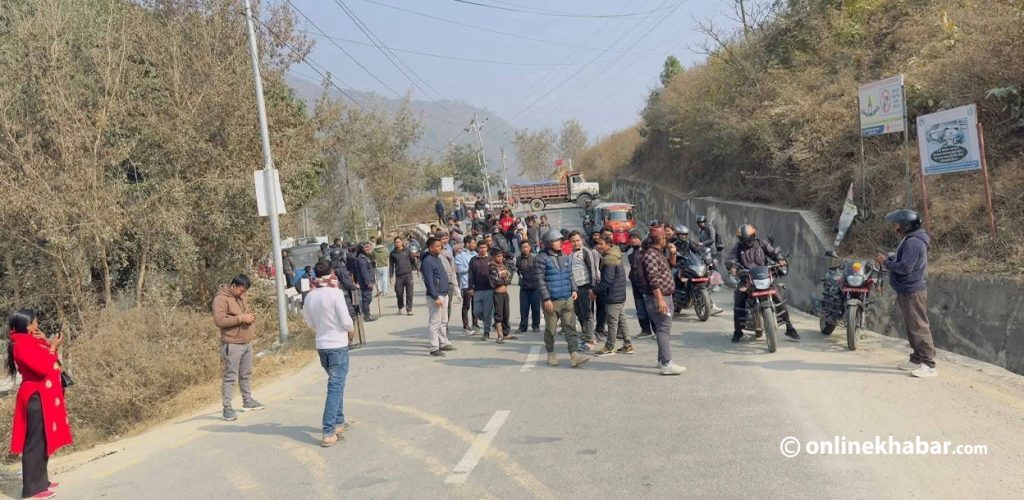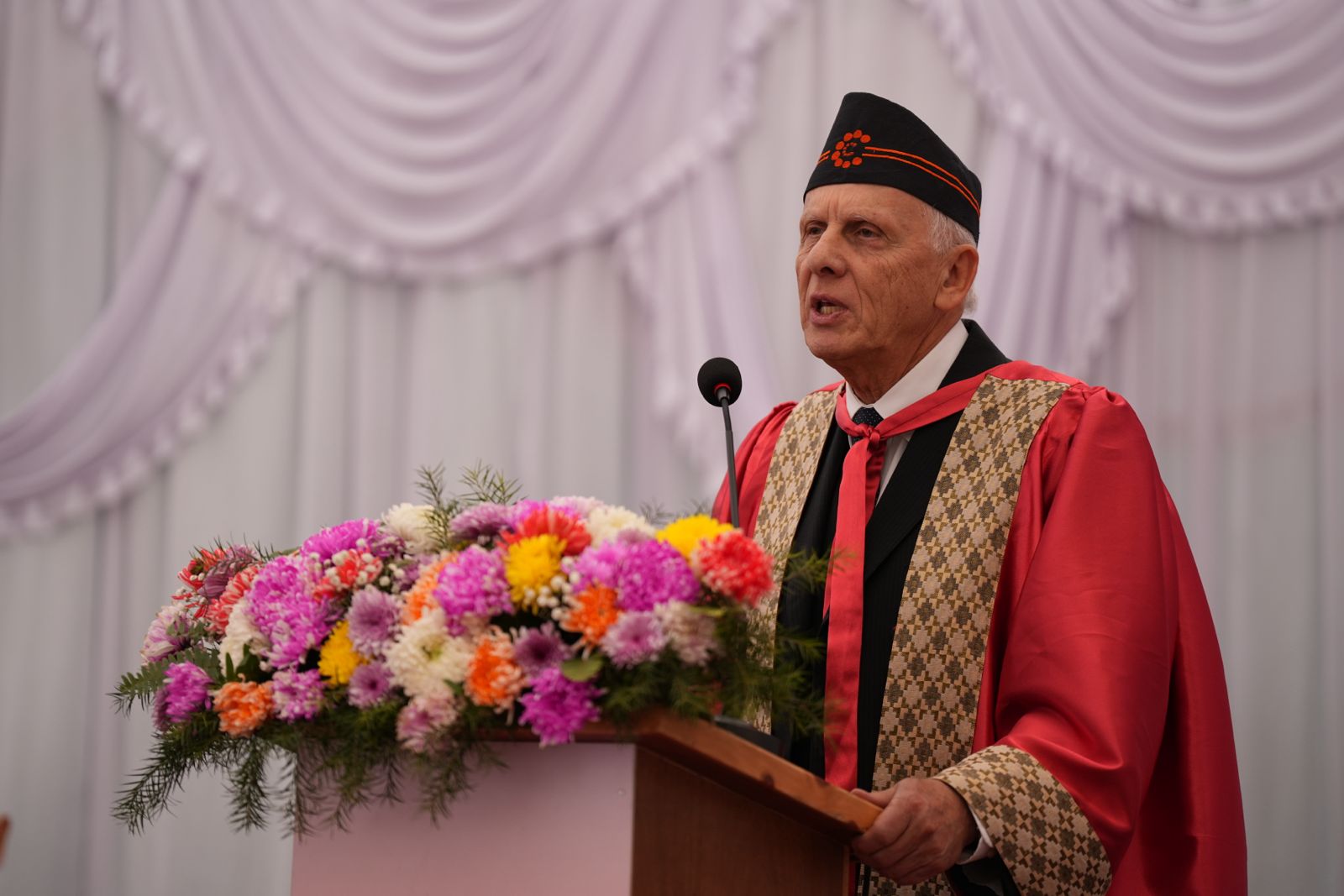 Shreeprabha Kshetri (name changed) is in the middle of her second-year studies of the three-year Bachelor of Arts programme offered by the Tribhuvan University. One of her majors is social work; she knows the subject requires a lot of practical skills. “But the teachers just teach at class, that too quite superficially, and go off,” this student of a private college located in Dillibajaar of Kathmandu says.
Shreeprabha Kshetri (name changed) is in the middle of her second-year studies of the three-year Bachelor of Arts programme offered by the Tribhuvan University. One of her majors is social work; she knows the subject requires a lot of practical skills. “But the teachers just teach at class, that too quite superficially, and go off,” this student of a private college located in Dillibajaar of Kathmandu says.
“I joined social work because I saw many people studying this, but I found the course not adequate to make me a social worker, and the teaching methods and available teachers even worse,” Kshetri says with a confused face, “By the end of the next year, I will graduate, but I am sure I won’t be a social worker, professionally.”
Every year on the third Tuesday of March, World Social Work Day is celebrated globally. Even in Nepal, this day has been celebrated since 2013 though many events were cancelled due to coronavirus fears this year. And, every year on this day, concerned institutions, teachers, and thousands of students of social work, which as an academic course has become a fashion for the urban freshers, raise the agenda of professionalisation of the discipline and state licensing of ‘social workers’.
The leaders of social work education in Nepal have constantly raised their voices for the identity and professionalisation of social work so that anyone—ranging from corporate tycoons to political leaders–cannot term their petty welfare activities conducted to achieve some vested interests ‘social work’. However, some experts, aware of the mindset of students like Kshetri, still question if Nepal has already achieved the Hfundamentals required for professionalisation.
Fault in curricula
 Since formal education of a social work course at the Bachelor’s level began in 1996, tens of thousands have already graduated and thousands are still currently pursuing a degree in the colleges affiliated to the Tribhuvan University. However, the scope of the students is limited to the national and international NGOs currently. The knowledge and skills of the discipline are limited to administrative works. While there is a limited scope, also there is confusion on its purpose since the curriculum is not well-evaluated, according to the experts.
Since formal education of a social work course at the Bachelor’s level began in 1996, tens of thousands have already graduated and thousands are still currently pursuing a degree in the colleges affiliated to the Tribhuvan University. However, the scope of the students is limited to the national and international NGOs currently. The knowledge and skills of the discipline are limited to administrative works. While there is a limited scope, also there is confusion on its purpose since the curriculum is not well-evaluated, according to the experts.
They argue that the existing social work education has failed to produce an adequate number of sufficiently qualified professional social workers as well as researchers. Dr Raj Yadav, who completed his PhD in social work from the University of Newcastle in Australia, argues that the current and past social work curricula are insufficient to produce skilful professionals. “Since the curricula are borrowed from other developed countries blindly, the pedagogy of the discipline is yet to accommodate the Nepali context and it cannot provide the aspiring students with the skills to solve the problems of Nepali society.”
“The courses are designed in a manner without having to go into the details of what kind of social work is needed in Nepal; what social work education is; what its history in Nepali context; what its potentials are and what its weaknesses are.”
Dr Sujeet Karna, a social anthropology scholar from the University of Hull, voices similar concerns. “There is a huge gap between the courses designed and what kind of human resources this subject will produce.”
The Tribhuvan University is the largest social work teaching institution in Nepal based on affiliation and numbers of the students, with hundreds of colleges teaching thousands of students. While the quantity of aspiring social workers is high in number, the quality of education at the bachelor’s and master’s levels is questionable for these experts.
Practice-based profession without proper practice
Dr Yadav and Dr Karna believe that social work taught in the classroom is used to provide logical, rather than evidence-based, examples. Dr Karna argues, “The social work education should be designed in a way that the students learn the skills from the fieldwork. But many teachers in Nepal do not have the capacity to teach them. They do not know how to use the data that students bring from the field, the result of which affects the overall professional development.”
“Social work is a practice-based subject,” says Dr Yadav, “The students should learn the skills more from practice and internship. But, with the educators unable to supervise their students, the base of the discipline is still not established.
 Sanjeev Dahal, a PhD candidate at the Boston College, says, “A robust curriculum in social work could guide the process of nourishing social workers who are adequately equipped for professional practice, but there are many other variables in addition to a robust curriculum.” The variables include skilled human resources to support the academic endeavour including facilitation of teaching, fieldwork supervision, and availability of opportunities to implement classroom learning into practice through practicum/internships, according to him.
Sanjeev Dahal, a PhD candidate at the Boston College, says, “A robust curriculum in social work could guide the process of nourishing social workers who are adequately equipped for professional practice, but there are many other variables in addition to a robust curriculum.” The variables include skilled human resources to support the academic endeavour including facilitation of teaching, fieldwork supervision, and availability of opportunities to implement classroom learning into practice through practicum/internships, according to him.
“Having said that, I do not think the current (and past) social work curricula in Nepal provide that strong guidance needed toward the development of professionals adequately equipped to take on the challenges of social work practice.”
Only a handful of researchers have emerged during the 24-year journey of social work education in Nepal. Dahal points out that the curricula themselves are limited. “I don’t think the current (and past) social work curricula in Nepal adequately prepare social work academicians because, first, it is not designed for that purpose. Second, it doesn’t sufficiently encourage critical thinking. Third, it doesn’t adequately equip students with the skills to be academicians. And, fourth, it doesn’t provide deep engagements with theories of social work that are paramount in both direct practice and academic practice.”
“If five out of 50 students become academicians, educational institutions should not get credit,” Dr Karna explains. “The remaining 45 should also come out as good learners.”
Multidimensional problems
Dr Yadav argues that the current structure of the social work department (in the TU) is not accountable and responsible for the subject or its students. “The Ministry of Education and the university, which are at the top of the pyramid, do not seem to be flexible in bringing necessary changes to education.”
He sounds right as the curriculum of social work offered by the university has recently been reviewed after 19 years.
 Yadav, the author of ‘Decolonised and Developmental Social Work: A Model of Nepal’, a Routledge publication in 2019, argues, “The educational history of Nepal’s social work can be divided into three phases: the beginning phase from 1996 to 2004 when the subject was introduced; the popularity phase from 2004 and 2009 when the subject was expanded, and; the disillusion phase from 2009 onwards.”
Yadav, the author of ‘Decolonised and Developmental Social Work: A Model of Nepal’, a Routledge publication in 2019, argues, “The educational history of Nepal’s social work can be divided into three phases: the beginning phase from 1996 to 2004 when the subject was introduced; the popularity phase from 2004 and 2009 when the subject was expanded, and; the disillusion phase from 2009 onwards.”
Dr Karna has similar views, “The purpose and justification of social work were clear in the beginning. Everyone was working hard, driven by a fear of failure, to make it successful.”
He argues further that the expansion of the market before extending the discipline to master’s and PhD was the primary reason why skilfully qualified educators could not be produced and let alone the qualified professionals could not work in the social settings.
“The problem of the discipline is not one-dimensional, and, thus, the structure or a person should not be blamed solely. These are complex and multidimensional. But, the people and organisations with leadership roles have become embroiled in internal politics and they are currently ignoring how social work can be improved.”
In Dahal’s understanding, many of the educational institutions are “running merely to cater to the demands of students and thus generate profit without adequate resources.” The problem aggravates with sloppy monitoring and evaluation of the programmes and the curricula that are hardly cohesive.
“I have heard from students in several institutions that they don’t have to go to fieldwork placements; they don’t have any books on social work in the library; they are taught social work courses by teachers who are not trained in/exposed to social work, to name a few. Such sharing from students from several institutions, including constituent colleges of the Tribhuvan University, calls for serious attention from stakeholders.”
Professionalisation or what else?
With the issue of professionalisation raised mostly during the Social Work Day celebrations only, Dr Yadav argues that other issues must be dealt with before entering into the discourse. “A profession has a certain set of knowledge and skills; more importantly, it has ethics. But our agenda has never included professional ethics of social work in practice, let alone the code of ethics. So the debate of professionalisation is senseless without the foundation of social work. First, there has to be a meeting with the stakeholders – the institutions, educators and students and social work graduates – to shape these knowledge, skills, and ethics before even entering the debate of professionalisation.”
According to Dahal, social work in Nepal has no alternatives to being professionalised. “Professionalisation is a process that includes building adequate structures and resources including establishing a Council on Social Work, accreditation of social work programmes, training of social work educators and practitioners, investing in inter and intra-national collaborations in social work practice and education. Likewise, it should ensure a robust curriculum and its effective implementation, carrying out researches on the knowledge, attitude, and skills necessary for effective social work practice in relevant areas, among others.”
By then, Dahal hopes the students like Kshetri will grow confident enough to become real social workers in society.























